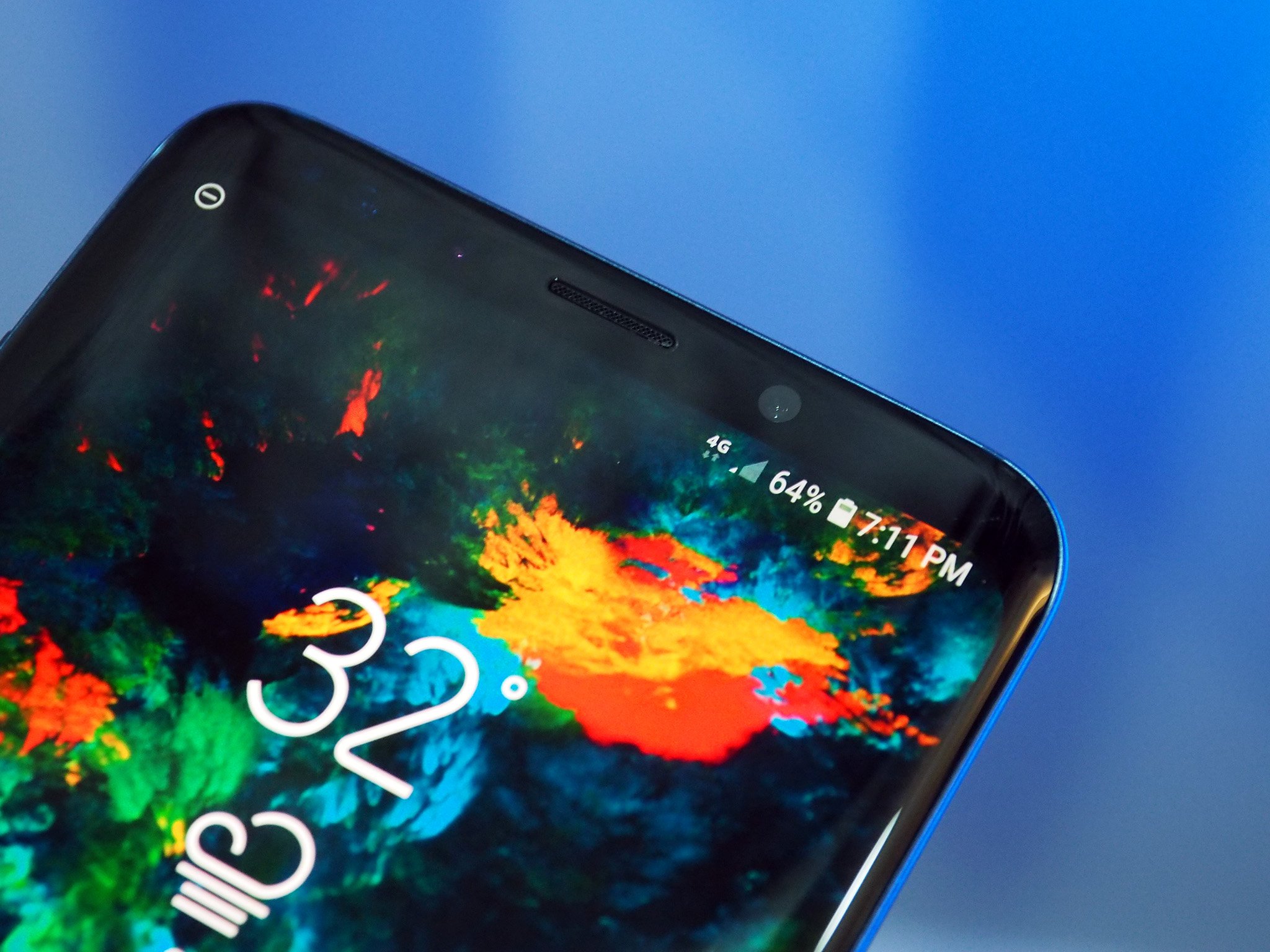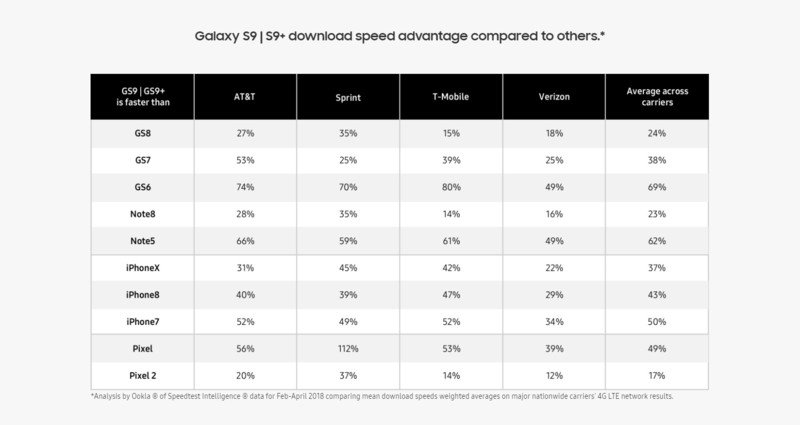The Galaxy S9 has dramatically faster LTE than the iPhone X, but that isn't the whole story

Get the latest news from Android Central, your trusted companion in the world of Android
You are now subscribed
Your newsletter sign-up was successful
As technology advances and more of what we do transitions to the internet and cloud, it's increasingly more important to carry smartphones that offer reliable LTE performance. Samsung recently revealed that the Galaxy S9 and S9+ have demonstrated LTE speeds that are up to 42% faster than competing handsets in real-world conditions, and while that might sound like a seriously impressive feat at first, it's not as jaw-dropping as Samsung's cracking it up to be.
First off, let's go through how Samsung got the numbers it did. Samsung used Ookla Speedtest, a well-known company, to track LTE performance on the Galaxy S9, iPhone X, Google Pixel 2, and two-generations-old Galaxy S7. When doing so, Samsung found that the S9 series was: 37% faster than the iPhone X, 17% faster than the Pixel 2 and 38% faster than the Galaxy S7. At least, on average.
The study was conducted via speed tests on Verizon, AT&T, T-Mobile and Sprint from February to April of this year, and compiled along weighted averages to take out the outliers. All of that is perfectly legitimate, and while Samsung and Ookla are honest in their testing, being 37% faster than the iPhone X in average benchmark-like tests isn't necessarily representative of real-world performance you'd actually experience. As you can see in the chart below, the carrier in question alone will make a huge difference in the delta of speeds between two devices, before you even get to everything else. Here's how the numbers break down:

The modem that's being used in the Galaxy S9 and S9+ is considerably faster than the ones found in other handsets, as the test results show, but the variables that go into data speeds when using your phone like a phone and not strictly testing download speeds aren't as clear cut. What network is your phone on? How's the coverage in your area? How many apps do you have accessing data in the background? What kind of file are you downloading? Where are you downloading from? All of these questions (and more) weigh heavily in the end result of whether your Galaxy S9 would feel notably faster than an iPhone X or Pixel 2.
Furthermore, as seen in the table above, the carrier you get your phone from can also have an impact on data performance. In the case of the iPhone X, GSM versions of the phone use an Intel modem while the Verizon variant boasts a Qualcomm one.
Real-world use is a completely different beast than benchmark tests.
A snappier modem can contribute to technically faster speeds, but when you throw in all of the real-world variables and the fact that most consumers likely wouldn't notice any difference above a certain threshold, that "42% faster" figure loses some of its luster. Yes, it may be faster — but you may not actually notice it being faster given the real-world circumstances we all deal with as network conditions change.
The Galaxy S9 is a tremendously powerful phone and is capable of wickedly fast data speeds, but so are most other modern smartphones. There may be many instances where the Galaxy S9 is able to finish downloading an app or video file a handful of seconds faster than an iPhone X or Pixel 2, and while that's a welcome convenience to have, it isn't reason enough to ignore the rest of the competition — it's just another data point to take into consideration.
Get the latest news from Android Central, your trusted companion in the world of Android

Joe Maring was a Senior Editor for Android Central between 2017 and 2021. You can reach him on Twitter at @JoeMaring1.
